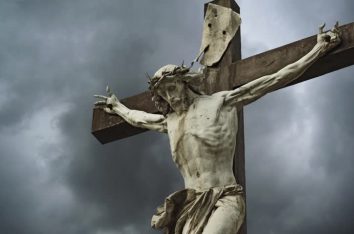In my last post I sort of set the stage for a kind of Christian agnosticism, a way of doing faith without swallowing the jagged little pill of feeling like you have to be an asshole about it.
Allow me to elaborate. Christianity is often rather gnostic as opposed to agnostic — conservative believers operate as though they know everything (Gnosis in Greek means “knowledge”). They know that God exists up in heaven, they know that he will judge everyone according to a standard that, again, they know. In their minds, their polar opposites are those rabid atheists who are certain that God does not exist (because, you know, science).
My ironic suggestion is that perhaps theists and atheists are the true teammates here since, while the are metaphysically opposed, they are epistemologically united by their claimed certainty that they’re right and they know it (either on the authority of God or Neil deGrasse Tyson).
Likewise, a sense of uncertainty can unite those who think there may be a God with those who think there may not be.
In a word, epistemology is the new metaphysics, and it’s not so much about the what of belief but the how of believing it.
In the next few posts I’d like to take this Christian agnosticism out for a spin and see how it functions practically in everyday life and the real issues our culture is facing. To do so I’ll be employing terms and phrases that I’ve begun to fall in love with, such as “perhaps,” “maybe,” and “what if?”
For example:
What if it’s OK to put the cart before the horse by first determining who we want to be and then reverse-engineering a set of spiritual tenets that are most likely to get us there?
Perhaps the New Testament is not a frozen-in-time snapshot of what perfect morality should forever resemble, but instead just reveals a step in an ongoing trajectory that is moving increasingly toward the ideal of love of the other?
Maybe “God” is kind of traditional code for the origin of a call, a call that is whispered unthreateningly, insisting that we show mercy to the uninvited stranger?
My point is not to argue for these things (how gnostic!), but rather to point out that when we leave behind the idol of certainty we can open ourselves up to an infinite set of possibilities and surprises.
Stay tuned. . . .



